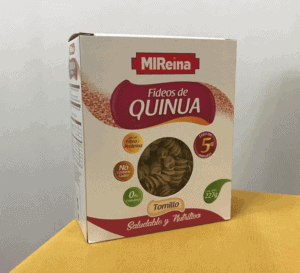The EU-funded PROTEIN2FOOD project, will present today their final results in the wider context of Europe’s protein transition at the conference: “Food for the future: Accelerating the protein transition”, taking place in Brussels, Belgium.
PROTEIN2FOOD, led by the University of Copenhagen, is a unique project whose aim is to increase the choices for plant-based protein products, to help consumers decrease their animal-protein intake. For the past five years, the group has been committed to solving the issue of meeting the globally growing demand for nutritious, affordable and environmentally sustainable foods, especially proteins.

Using high-quality protein seed crops (i.e. quinoa, amaranth and buckwheat) and high-quantity protein legumes (i.e. lupin, faba bean, lentils), the project has worked with protein-rich food crops and developed new plant-based protein-rich food prototypes, such as novel lentil-based infant formula and a milk alternative. With these products, the project aims to increase the choices of plant-based protein products, to help consumers decrease their animal-protein intake.
Additionally, PROTEIN2FOOD has achieved the following results:
- Identified important genetic markers for protein production in the selected crops. This has resulted in the discovery of two quinoa varieties that have much higher protein content compared to other varieties, which could help enhance protein production in Europe.
- Developed environmentally friendly and resource efficient processing methods, such as aqueous processing to create new lentil, faba bean and lupin protein isolates, which were not previously available to the market. These processes involved fewer processing steps, consider side streams and increase ingredient yields.
- Researched market conditions and socio-economic aspects of the protein crops, which showed that quinoa was the crop most suitable across 70% European arable land, followed by blue lupine (23%).
- Shown that PROTEIN2FOOD alternatives, such as the lentil-based milk alternative are better for the environment than soy-based and traditional animal-based protein products.

A policy-oriented conference
The conference is free of charge and aims to bring together researchers, policy makers and industry representatives to showcase the project’s results, discuss the opportunities and barriers of transitioning towards more high-quality, protein-rich plant-based foods and examine the policy tools and implications that can help Europe’s protein transition stays on track.
The event will feature Nick Jacobs, Director of the International Panel of Experts on Sustainable Food Systems (IPES-Food) and Professor Sir Charles Godfray, Director of the Oxford Martin School and Director of Oxford Martin Programme on the Future of Food as keynote speakers.
PROTEIN2FOOD Final conference – Food for the future: Accelerating the protein transition
Date and time: 29 January 2020, 10:00 – 16:00 Registration link here
Location: Les Ateliers des Tanneurs, Rue de Tanneurs 60A, 1000 Brussels, Belgium





